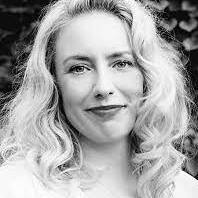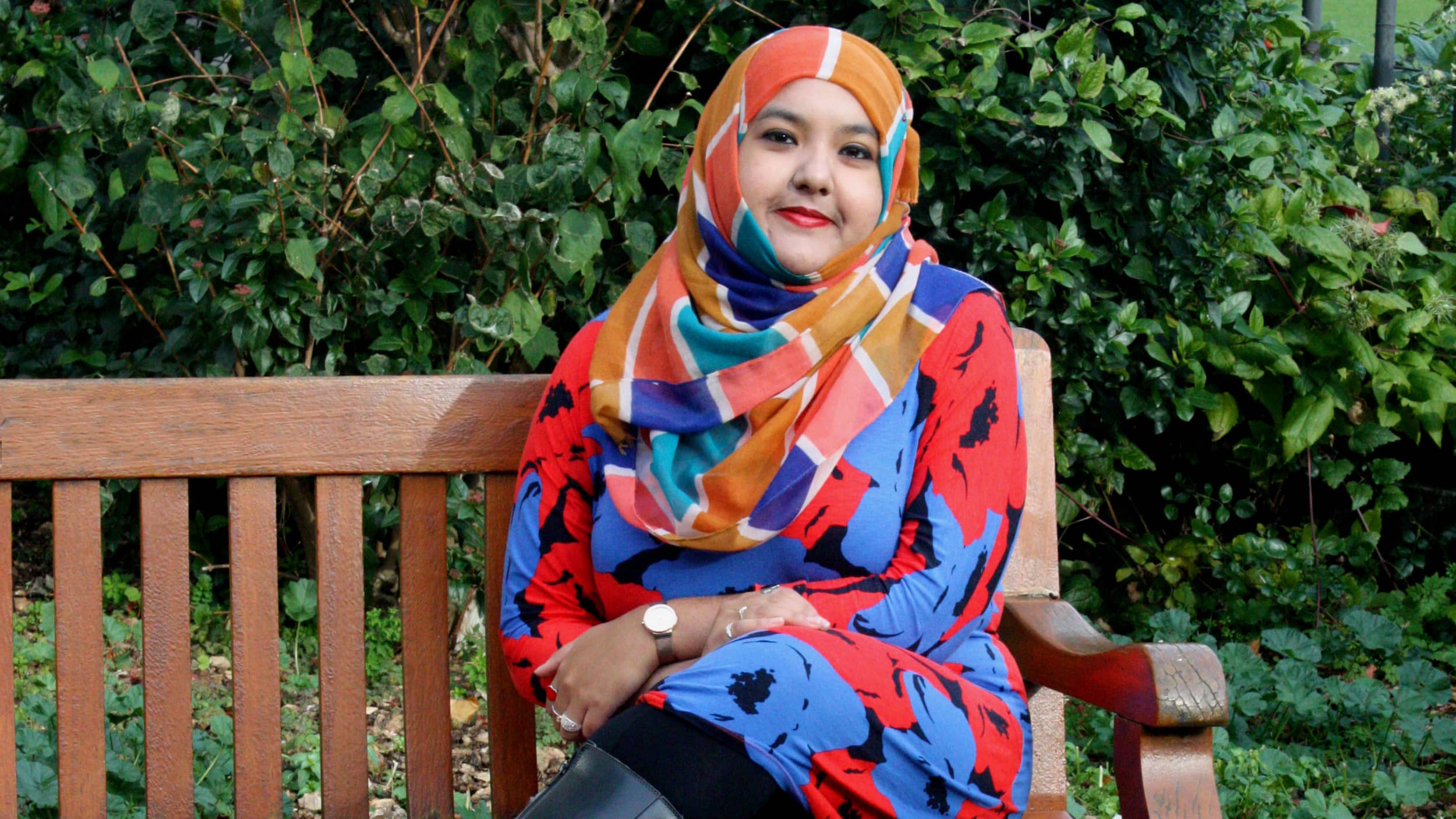You are viewing your 1 free article this month. Login to read more articles.
Adiba Jaigirdar | 'I do feel very supported by the Irish people'

Adiba Jaigirdar talks to Anna-Marie Crowhurst about her latest YA novel Hani and Ishu’s Guide to Fake Dating

A tragic storyline in "Orange is the New Black" made Adiba Jaigirdar write her first novel, in a roundabout way.
“A while back there were a couple of weeks where all the queer characters on TV were just dying,” she tells me, over a Zoom chat from her home in Dublin. “On ‘The Hundred’, Lexa died, and on ‘Orange is the New Black’, Poussey died—I remember closing my laptop and thinking: ‘I’m done with these shows!’ I got so depressed knowing that that’s the ending the characters got.”
This was when, in her early twenties (she’s 26 now), Jaigirdar turned to books: books that were more likely to be actually written by queer people, and therefore featured positive outcomes for queer characters. That was the spark. She decided she wanted to write “books about young queer brown girls who got that happy ending”.
So she did. Jaigirdar cites her Bengali-Irish background as informing her writing. Born in Bangladesh, Jaigirdar lived “an interesting life” between there and Saudi Arabia, before landing in Tullamore, County Offaly, at the age of 10. “That was an interesting experience,” she says. “There weren’t a lot of people of colour there. I couldn’t understand the accent so everybody thought I couldn’t speak any English... but I was fluent in it!” she laughs. Jaigirdar’s family moved to “much more multicultural” Dublin a few months later. “Ireland is a very literary country,” she points out. “If you walk around Dublin, you can see statues of literary figures and bridges named after famous writers. You’re very steeped in literature living here.” At school Jaigirdar enjoyed reading and studying Irish writers. “You’re very much encouraged to connect with literary Ireland. It felt like literature was always very close here.”
As a teenager, Jaigirdar was a voracious reader and writer, and her first try at a novel came at the tender age of 13. “I discovered NaNoWriMo,” Jaigirdar explains, of the organisation that backs the annual “write a novel in the month of November” challenge. “Because I’d always been writing, I was like, ‘Of course I can write a 50,000-word novel in a month!’ And I actually did manage it. It was rubbish, but I got it done.”
After a BA in English and History and a Masters in Postcolonial Studies, Jaigirdar says she felt more connected with her culture and heritage; until that point, she had written about many things, but not people like her. So she wrote an adult literary novel—it was “very heavy” and “to do with grief”—but it didn’t go anywhere. Meanwhile Jaigirdar had been immersing herself in the world of YA, revelling in the joyous escapism, light-hearted tone and fast-paced plotting.
Jaigirdar was seeing diverse YA books, too (“for the first time in my life”) and discovering authors such as Jenny Han and Sandhya Menon. The launch of We Need Diverse Books, the US non-profit organisation advocating diversity in the children’s publishing industry, excited her. Inspired, in a three-month heady rush, “just trying to do my best and see what happened”, Jaigirdar wrote The Henna Wars, a warm-hearted queer rom-com about Bangladeshi-Irish teen Nishat, and Brazilian-Irish teen Flávia. It takes in Muslim and mixed race identities, homophobia and cultural appropriation, and starts off with a bang: Nishat coming out to her confused parents after a Bengali wedding.
Jaigirdar sent the manuscript off to agents, but there was a problem. In Ireland and the UK, “everybody had all-white lists. All the books being published were all by white people.” Added to that, British and Irish agent response times were achingly long. Feeling put off, Jaigirdar focused on the US, where she was already fully immersed in the YA publishing industry via Twitter, and knew she would get a quicker response to queries. More importantly, Jaigirdar felt wanted.
She says: “My now agent [Uwe Stender at Triada US] had so many clients of colour. He was [agenting] books by people of colour about people of colour.” After she signed with Stender, Jaigirdar says she was worried that no more Bengali authors would be signed “because the publishing industry can be a bit tokenistic”. But when he signed another Bengali author straight after her, simply because he loved their story, Jaigirdar was certain she had made the right choice. “I’m not sure if that would quite be the case in UK and Ireland,” she says, carefully.
The Henna Wars was published in 2020 in the UK by Hachette Children’s, which acquired UK and Commonwealth rights from Page Street Publications in the US. Jaigirdar’s second novel poured out of her in a surely record-breaking 30 days; Hani and Ishu’s Guide to Fake Dating was published in May this year. Like The Henna Wars, Hani and Ishu is funny and warm, cleverly balancing skilled storytelling and romantic themes with an exploration of issues such as race and otherness, queer- ness and sexuality. For both these novels, Jaigirdar wove her real-life experiences into her writing. The first few pages include Hani experiencing migro-aggressions from her “friends”, which has been Jaigirdar’s experience, too.
“In Ireland, I think a lot of what I have experienced is racism born of ignorance, which I think I can understand...” Jaigirdar muses. “A lot of people haven’t met someone who is Muslim or from Bangladesh, and they may be curious and want to ask a lot of questions. That’s OK, as long as they’re not being micro-aggressive...but I think you have that other kind of racism that doesn’t come from ignorance. It comes from being a little bit vicious.”
The response from her readers has been incredible, she says. “For many people it is the first time they’re seeing that representation. Hopefully for readers this is the first of many!” She is excited about the development of queer romance as a YA genre, and the ever-expanding diversity in YA generally. “It’s amazing that any teen can go to a bookshop or library and find so many queer romances— and even pick up a title like a fantasy novel and it has a big queer romance in it,” she says.
On a roll
Jaigirdar is firing on all cylinders, currently taking a break from her day job as an ESL teacher to focus on writing, and has already sold her next two YA novels, to HarperCollins US. The first, A Million to One, will be Jaigirdar’s first historical title. Set in 1912, it’s the romantic story of four girls who board the “Titanic” trying to pull off a heist. The follow up, Donut Fall in Love (at the mention of it Jaigirdar chuckles away in pun-based delight), is about a girl who enters a baking show and has to compete against an ex-girlfriend as well as her new crush. “We have so many donut shops in Dublin, I thought it would be cool to write a book related to baking,” she says.
Yet more books are on the horizon for Jaigirdar: she is beginning a middle-grade story and is thinking about an adult novel after that. She’s reflecting, too, on how Ireland has helped her as a writer. “It is difficult if you’re a marginalised author to get your foot in the door,” Jaigirdar says. “But I do think there are a lot of systems in place—grants, fellowships, residencies. Ireland wants to support its writers. I do feel very supported by the Irish people.”
Book extract
I’m about to go up to my room when Amma reaches out a hand to stop me. She takes me in with a frown on her lips. ‘Are you OK, Hani?’
Coming home to my mother’s voice saying Hani after a whole day of being called Maira always feels strange. Like stepping out of a skin that belongs to me but doesn’t quite fit. Hani is the name that Amma and Abba have been calling me for as long as I remember. It’s the name that feels like me.
Humaira is just the name on my passport, my birth certificate. The name given to people who aren’t family, who aren’t Bengali. And Maira...that’s just what Aisling decided to call me on the first day we met in junior infants. And it stuck.
‘I’m OK, Amma,’ I say. ‘Did you get into a fight with your friends?’ I don’t know how she knows. It must be a mam-sense thing. ‘I’ll make us some cha and we can talk about it?’
This is something that Amma and I do sometimes. When she’s feeling down or I’m feeling down, we make cha, sit in a bed under the covers and talk about what’s bothering us. Or sometimes about nothing much at all, really. ‘OK,’ I say. ‘Let’s have some cha.’









